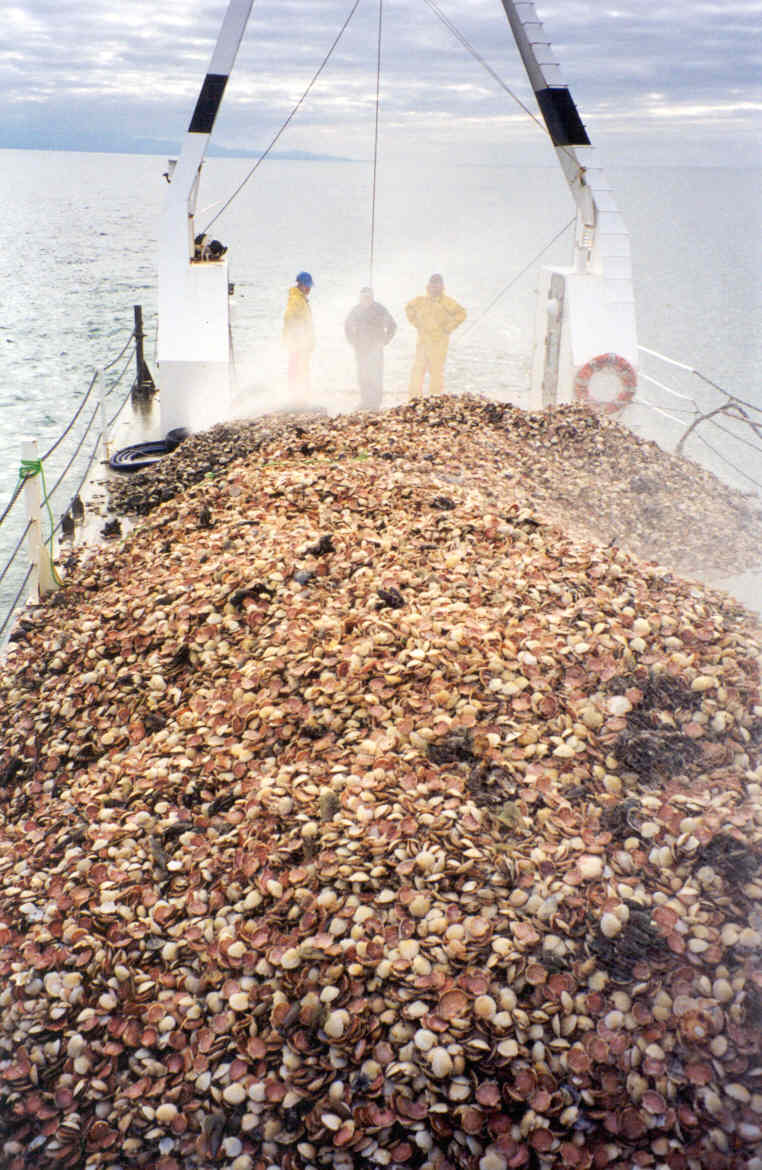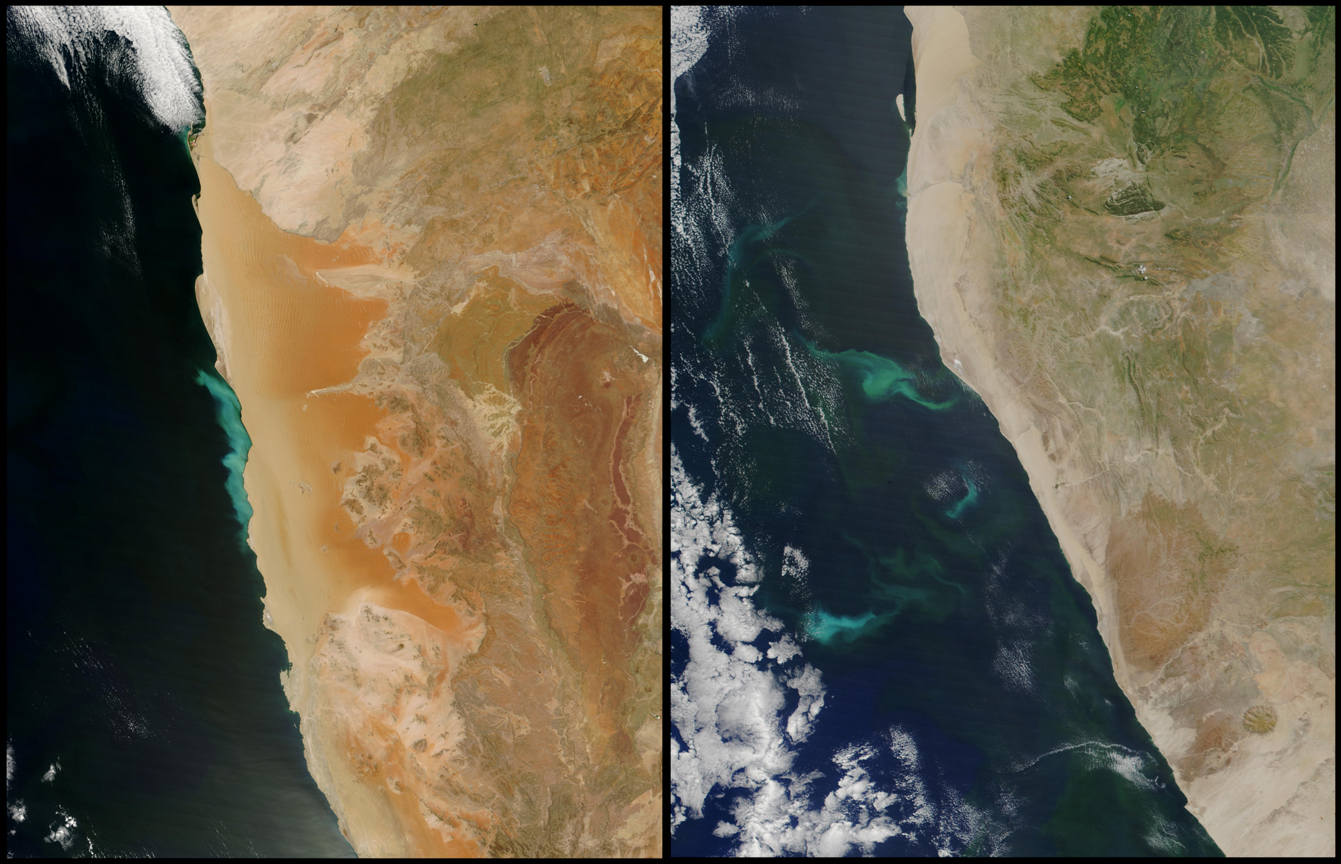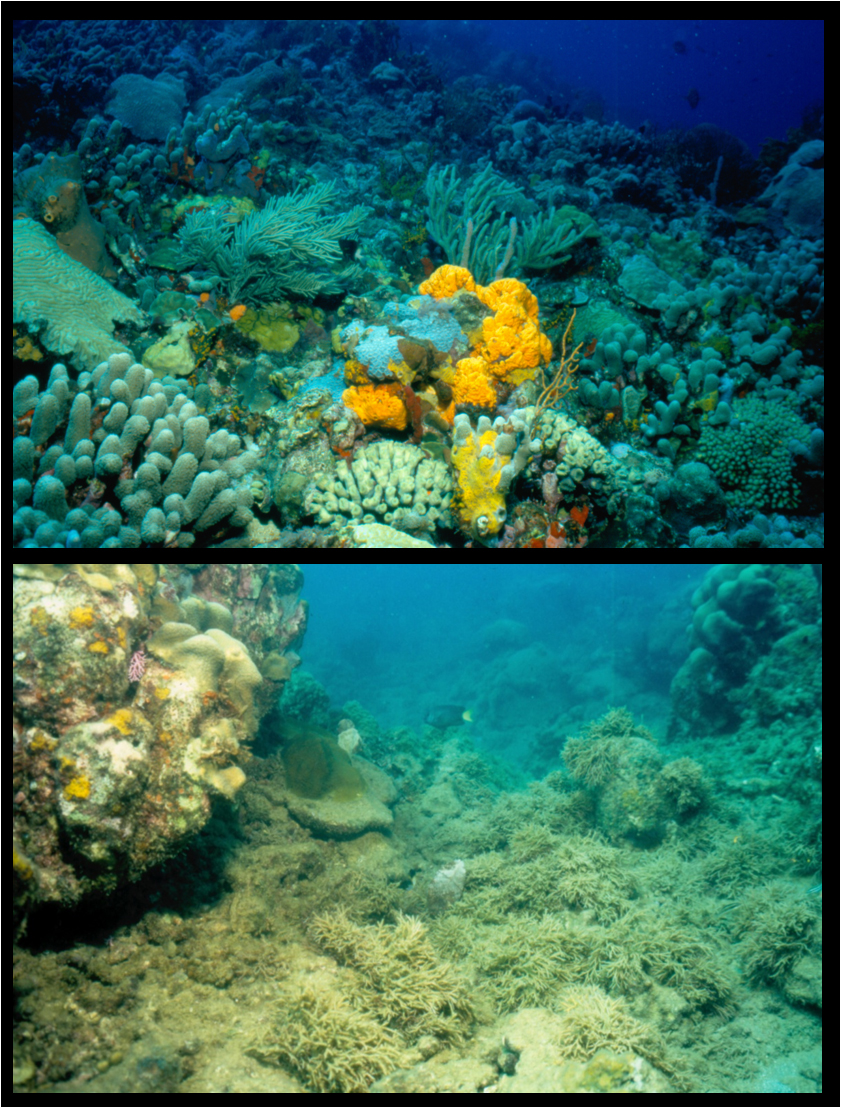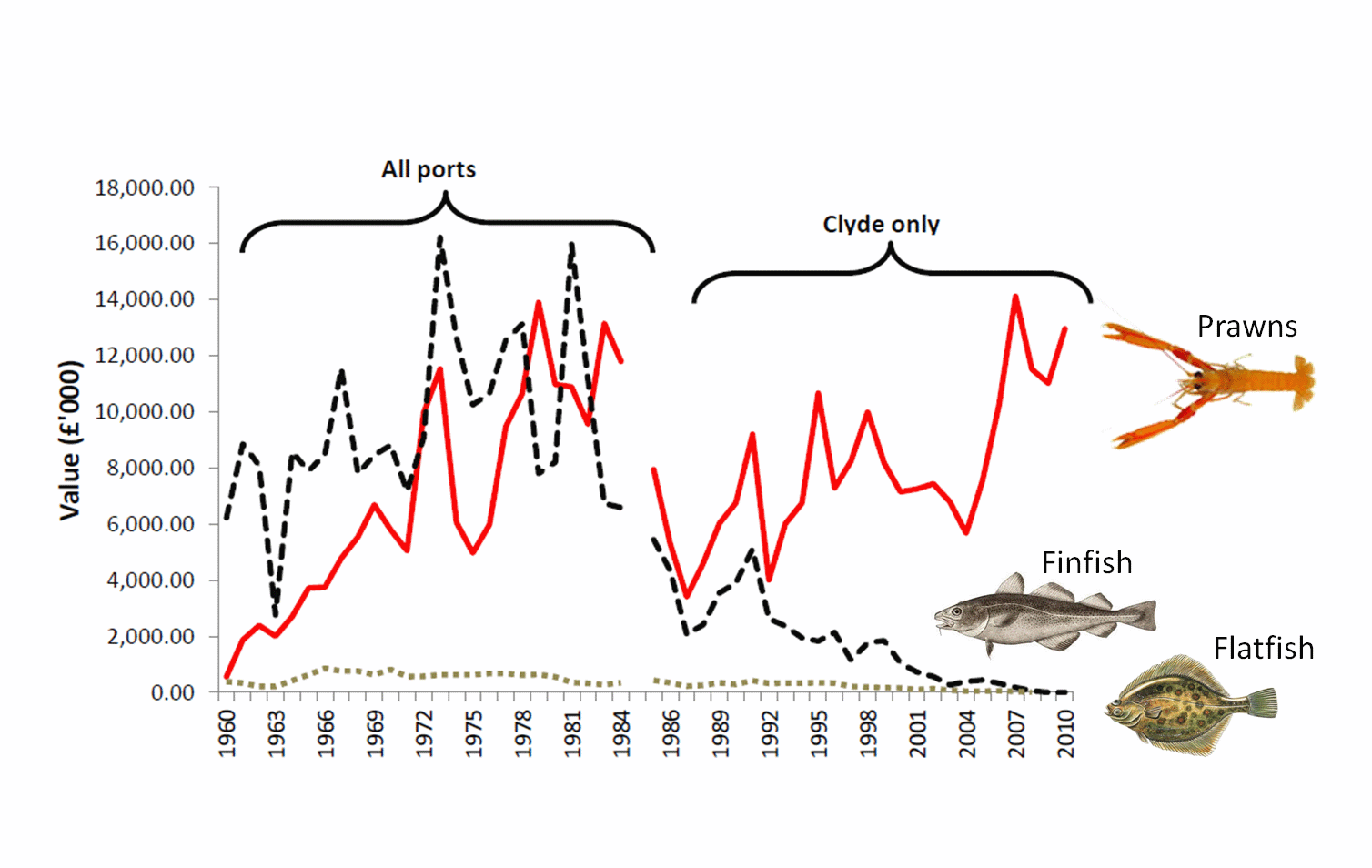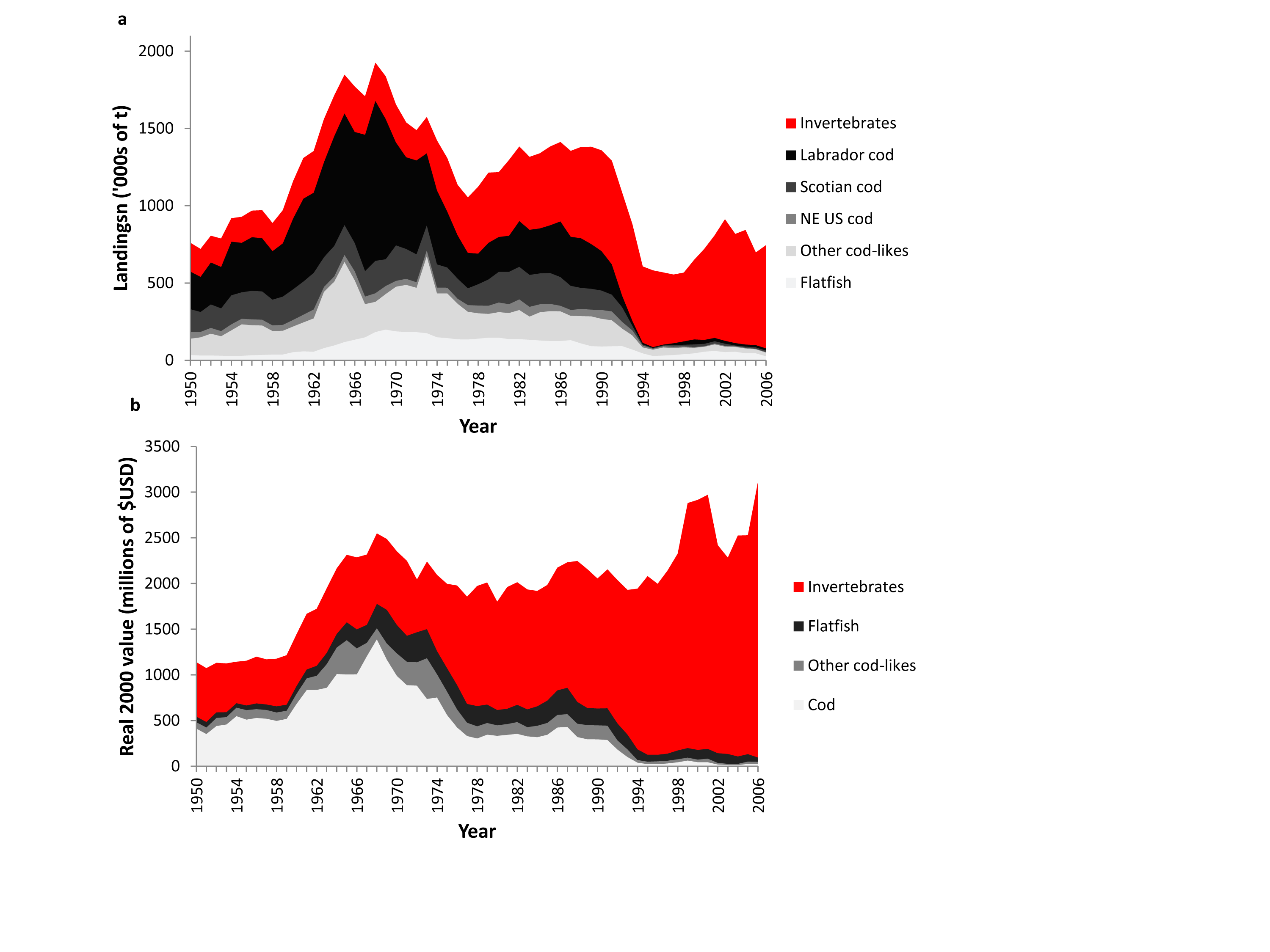Fisheries gallery
Click on the thumbnails for a larger version of each image. See below for captions and credits.
- The ecological effects of intensive fishing. From left to right, fishing effort increases over time. As a result, large predatory fish become depleted and fishers are forced to target new species. Consequently, the marine ecosystem becomes progressively more damaged and biodiversity is reduced. In this unnaturally predator-free environment, the ecosystem can become dominated by highly valuable shellfish, or by harmful algal blooms, highly invasive gelatinous plankton and jellyfish. Photo credited to the University of York.
- Great scallop - Catches of great scallops have tripled in the last 10 years, making it now the 3rd most valuable fisheries species in the UK. But scallop dredging can damage seabed habitats and this species is at great risk from ocean acidification in the future (Photo credit: Howard Wood).
- Lobsters are a highly valuable species in both the UK and North America. Credit: Bryce Stewart
- Prawns (otherwise known as scampi) are now the most valuable fisheries species in the UK, worth over £110 million in 2011. Credit: Bryce Stewart
- Lobsters are a highly valuable species in both the UK and North America. Credit: Bryce Stewart
- A huge catch of young scallops in New Zealand. This fishery was highly productive in the 1980s and 90s, but has now completely collapsed for unknown reasons (Photo credit: Peter Duncan).
- Sulphur eruptions off the west coast of Africa: Overfishing has led to increased algal blooms, severe hypoxia and increased eruptions of hydrogen sulphide from the seabed, which turn the sea a bright turquoise. Such effects can persist for over two months and cover an area of 20,000km2. Hydrogen sulphide is also a respiratory poison and its diffusion from the sediment to the water column has resulted in several massive killing events of fish and invertebrates. These killing events also cause lobsters and crabs to walk out of the ocean and on to the shores in their thousands, which people readily sweep up in buckets or whatever else they can use as a container. Hydrogen suplhide is also corrosive and irritates the eyes and throats of coastal villages, and it also leaves the smell of rotting eggs in their wake. Evidence suggests that this natural phenomenon may be increasing in frequency and intensity, and may be linked to overfishing. Photo credited to Jacques Descloitres and the MODIS Rapid Response.
- Smothered reefs: Overfished Caribbean reefs such as those off Jamaica (below) smothered by macroalage, which blocks the light and eventually kills the coral. This occurs as there are few herbivorous fish remaining that feed on the macroalgae compared compared to other reefs which still have their herbivore populations intact, such as those off St Lucia (above). Photo credited to Dr Julie Hawkins
- Prawns dominate the Firth of Clyde: Prawn landings are worth as much as all traditional fisheries ever did in the past, even when inflation is taken into account. Graph credited to Leigh Howarth
- Deforestation of kelp forests: Between the 1960s and 1990s, coastal kelp forests in the Gulf of Maine were replaced by communities dominated by coralline algae due to intense grazing pressure from sea urchins. The sea urchin population exploded following the collapse of cod and haddock, their primary predators. Picture taken in 1980 credited to Prof Robert Steneck
- The rise of invertebrate fisheries in the Northwest Atlantic: Predatory groundfish fisheries have collapsed in the Northwest Atlantic triggering a dramatic shift in the value and composition of species landed. (top) Landings of several groups of species in the Northwest Atlantic between 1950 and 2006. Landings of cod split between three regions. In all three regions, cod landings have almost ceased, and invertebrates now make up the majority of species landed. (bottom) Theinflation adjusted value of several groups of species between 1950 and 2006. Invertebrate fisheries are now worth more than the finfish fisheries they replaced.

.jpg)
.jpg)
.JPG)
.JPG)
.JPG)
